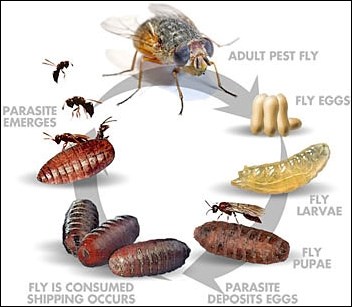Now that summer is almost officially upon us and most days there is more warmth in the air, there is also evidence of many bug-like critters enjoying the sun! The world of insects is fascinating as to the gardener their life cycle, the colonies they may live in and their ability to hunt for food all makes them rather remarkable. Even the thought of those little critters walking across your garden in perspective must be like walking from Saskatoon to Regina or Edmonton depending on the size of your garden area.
Sometimes the response by gardeners to any of these critters is to squish or spray now and be rid of those ugly and damaging pests! However, not all bugs/insects are a danger to the plants in our gardens – not all of the little critters are bad! Some present a more neutral side, doing neither harm nor good, happily living their life in the garden world. Other critters are helpful to the gardener by feeding on insects that do harm to our plants thus providing us with safe biological controls for some of the most common garden pests. Nature is also a remarkable thing with creating a balance that we as stewards of the land constantly disrupt. It is important for all gardeners and other stewards of the land to learn about the individual critter and its life cycle to determine whether it is friend or foe!
Beneficial insects (sometimes referred to as bio-control agents) are naturally in nature or readily available to farmers, growers and others. They fall into two basic categories with some being predatory and some being more parasitic in nature. Some do a little “host feeding” of both the parasitic and predatory nature. Some of the common predacious beneficial are beetles, wasps, mites and true bugs. The more parasitic beneficial are often mini-wasps and nematodes.
Introducing any biological control can be very effective but does not act like a pesticide solution. For instance if you have a fly problem, you can spray a multitude of products on these flies and effectively gain control for a while. However, the flies evolve quite quickly and often become more immune to the chemical control agents, which in turn causes us to use more toxic products to gain the same control. A biological works by interrupting the life cycle of the problem critter, (in this case the fly) and over time gains control of the population. This is not an instant fix but takes some time to be effective. The predator or parasite grows in number in response to the host and then decreases in number as the host dies off. This is a somewhat similar scenario to the coyote and the rabbit, or many other examples in our ecosystem.
It was my personal introduction into the beneficial world when I was a intensive livestock producer and gave an ideal environment to the many species of flies by providing livestock, bedding debris and my home landscape to aid them in living a happy life. As I am less than enamoured with flies, I strove to find a control measure that was sustainable but also economically feasible and effective. I discovered parasitic wasps whose only purpose in life is to source out the pupae of flies, and lay their eggs in those pupae. The parasitic wasp larvae develop, consume the fly and hatch into the adult form of a parasitic wasp and happily look for more fly pupae to procreate. Over time, what results with the correct level of application – is NO MORE FLIES! For me and countless others who embrace this method of control we now enjoy a much more pleasant outdoor experience – even if we do keep critters!
There are many other beneficials in our outdoor living space. These include ladybugs, lacewings, ground beetles, minute pirate bugs, syrphid flies and many more. Watch for the column next week to learn more about beneficials and how they benefit our garden environments.
If you are looking to purchase beneficials for any purpose, including fly control, please get in touch with us at the Saskatoon School of Horticulture at growyourfuture@gmail.com or by telephone at 306-931-4769.
Hanbidge is a horticulturist with the Saskatoon School of Horticulture and can be reached at growyourfuture@gmail.com
Enrol now for distance courses leading to a diploma or a certificate. Study with us or study in the comfort of your own home! Please contact us for further information or visit our website at saskhort.com
Let our team of experts help you to create the outdoor living area of your dreams. Our team of educated and skilled experts can build or renovate your new or existing landscape. Including decks; gazebos; sunrooms; solariums; retaining walls; fences; irrigations systems; and regular maintenance.
Target Certificate in Horticulture Program … learn from the comfort of your home and gain the skills and education to work in the field of horticulture. Graduates from SSH are recognized by the industry as superb additions to help their horticultural business grow!
Like us on facebook at Saskatoon School of Horticulture and get in on all the events coming up and follow us on twitter @horticulturepat.
For more information on any course or to register please contact: Saskatoon School of Horticulture by phone at: 306-931-GROW (4769); by fax at: 306-955-GROW(4769); or by email at: schoolofhorticulture@sasktel.net.



